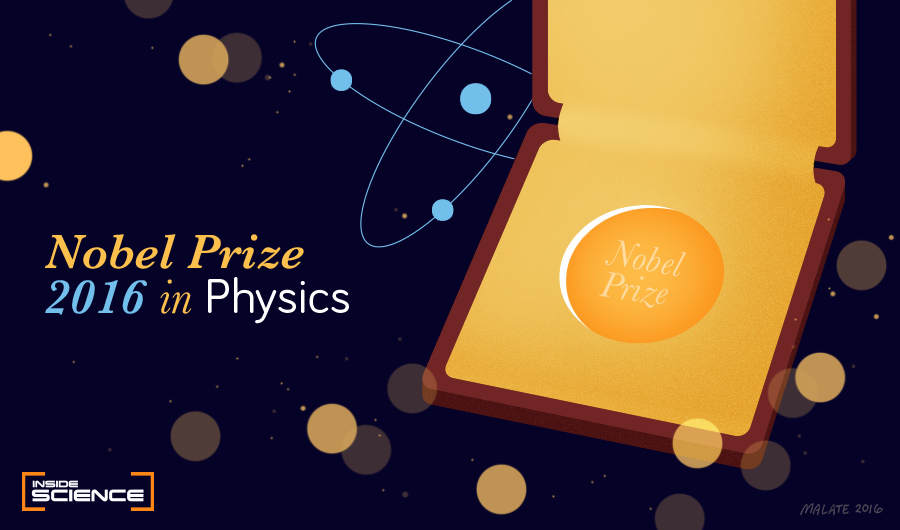David Thouless, Duncan Haldane and Michael Kosterlitz Share Nobel Prize for Study of Exotic States of Matter

Main image: Abigail Malate, Staff Illustrator; Teaser image: Julian Litzel via Wikimedia Commons
(Inside Science) -- The 2016 Nobel Prize in Physics was awarded to three physicists who used advanced mathematical methods to study exotic states of matter.
The prize goes jointly to David J. Thouless of the University of Washington in Seattle, F. Duncan M. Haldane of Princeton University in New Jersey, and J. Michael Kosterlitz of Brown University in Rhode Island, "for theoretical discoveries of topological phase transitions and topological phases of matter."
Working in the field of condensed matter theory, they revealed secrets of unusual phases of matter such as superconductors, superfluids and thin magnetic films. The discoveries will likely find potential applications in future electronics and other materials science related technology.
More details are available at http://www.nobelprize.org/nobel_prizes/physics/
Editor's Note: Inside Science will provide detailed coverage of the 2016 Nobel Prize in Physics in a longer article to be issued later today. All of our coverage of the 2016 prizes is available here.
For our coverage of other Nobel Prizes from recent years, please click here.

